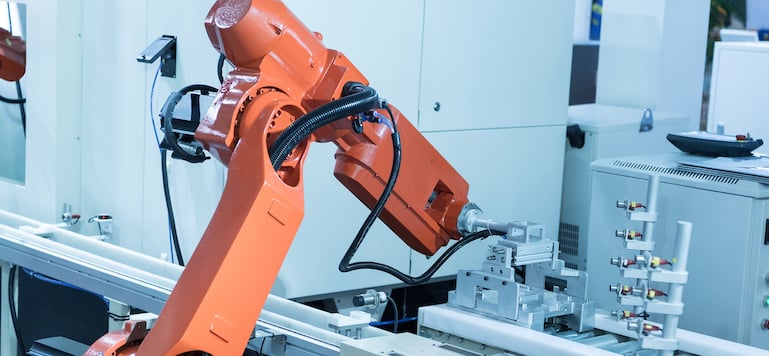Technological advancements have and will continue to change the business world in many aspects.
It has changed whole industries, making some obsolete and some more efficient and relevant. With the trajectory of the current state of technology, it’s expected that in the future, technology has the potential to drive global trade significantly.
The Future of Trade 2020 report identified Blockchain and Artificial Intelligence (AI) as the two main technological implementations that will shape global trade in the upcoming years. In this blog, we explore just how they affect the future of trade.
1. Blockchain TRADE TECHNOLOGIES
You may have heard of blockchain being described as a ‘digital ledger’ or in other words, a digital record of transactions. Blockchains are used to document digital transactions made with cryptocurrencies and also to store and communicate information in a public database securely.
While blockchain is most known for its role in facilitating the rise of cryptocurrencies such as Bitcoin, the use of blockchain goes well beyond this.
BLOCKCHAIN AND GLOBAL TRADE
Currently, customs and trade processes are highly complex and are one of the least digitised areas of trade. With paperwork being responsible for around 20% of the costs of conducting global trade, the systems are heavily reliant on this, which could prove inefficient.
Blockchain technology has the potential to improve this inefficiency, by cutting costs through the digitisation of documents. It also opens opportunities to make the system more secure by reducing forgeries, damage and loss of documents in transit.
Implementation of blockchain can also help reduce the heavy involvement of third parties by cutting the middleman out and driving costs down for all parties involved. With the advancements and creation of smart contracts with blockchain, it is possible to eliminate the process of issuing a physical bill of lading. Since blockchain is decentralised and public, the information is secure and fraud-free while also decreasing costs by as much as 90%. This once essential aspect of trade can now take place on a digital platform, bringing in greater cost efficiency.
2. Artificial intelligence IN TRADE
Artificial intelligence is primed to make the biggest difference in global trade going forward. With growing investment in AI, its versatility and potential can help efficiency in many different stages of trade.
It’s projected that by 2021, half of all manufacturing supply chains will have invested in some kind of AI for support. This could be through AI that utilises big data for supply management, AI-controlled robotics in warehouses and ports, or autonomous vehicles.
TRANSPORTATION AND AI
The use of AI in the transportation and logistics industry is predicted to increase annual revenue by half a billion dollars and may be able to impact the industry’s performance by up to 90%, due to its increase in efficiency and reduction in costs.
Seeing that many companies are focusing on the development of autonomous vehicles, the reality of self-driving vehicles are not far from reach. Autonomous vehicles can save on labour costs, while also improve the safety and environmental impact of shipping.
SUPPLY CHAIN AND AI
Further implementations of AI also allows autonomous storage with the development of autonomous ports and warehouses. Using AI to simplify data analytics solves the most complicated part of trade - supply chain management. Not only will AI data analytics speed up logistics, but it will also utilise the most efficient paths for operations which has the potential to drop costs by 40%.
There are a myriad of ways that AI impacts trade and statistics to back it up as well, if you are interested in more information, read the report.
Learn More ABOUT How Technology IN TRADE WILL CHANGE INDUSTRIES
Technology has a tremendous impact on trade going forward. To learn more about how trade is impacted by technology and for more in-depth information regarding the state of the industry in relation to technology, read our comprehensive report.





